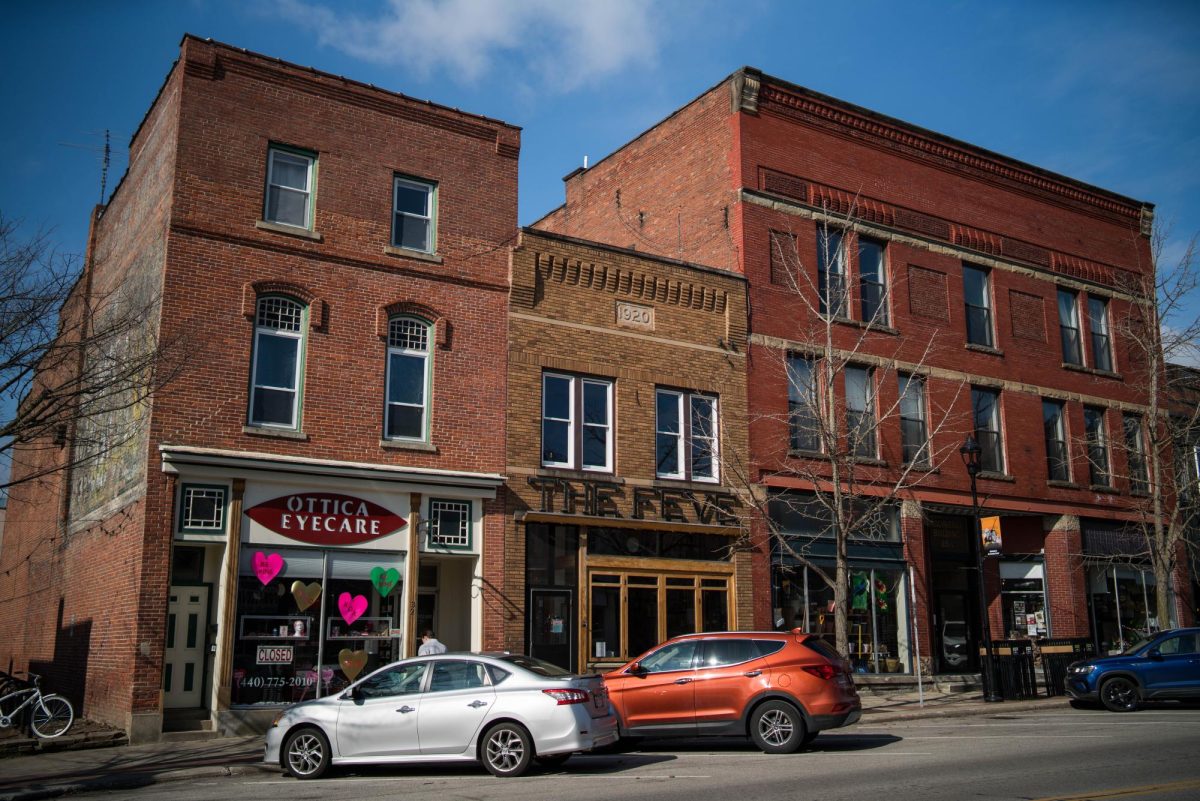At the April 15 City Council meeting, Councilmembers unanimously approved an ordinance creating a Steering Committee for the City of Oberlin’s Climate Action Plan.
The Steering Committee is tasked with reviewing and recommending updates to the plan, which will guide policy in Oberlin over the next five years. Oberlin’s first climate plan was released in 2011, and the last update to the plan was in 2019 for a period of five years. Now, at the expiration of that period, the Steering Committee will be looking to ensure that the City of Oberlin is able to meet its goal of reducing emissions to 75 percent of 2012 levels by 2030.
The first meeting of the new committee will be May 16. According to Sustainability Coordinator Linda Arbogast, the meeting will begin by assessing the current plan and its goals.
Arbogast said that the new plan will also take into account social equity and adaptation goals.
“This will be the first climate action plan that the city does that will incorporate both mitigation and adaptation,” John Petersen, Paul Sears distinguished professor of Environmental Studies and Biology, said. “Adaptation … is addressing the fact that the climate is changing … [and] reacting to the oncoming reality and trying to … prevent it from doing more damage.”
Even with these changes, Arbogast did not feel that the update would significantly alter the plan.
“Well, I don’t think that we will come up with a new plan,” she said. “I think what we will come up with is an update of the past plan. The last plan was pretty thorough and gives a lot of background and history. I think that this will be more of an update on assessing where we got with that plan. So I think it will be more of an addendum, but it’ll be up to the committee to decide that.”
Petersen also explained the value of creating these kinds of plans and goals.
“I think the value of what we do … in the City [and] also in the College, is oftentimes … being pioneers and coming up with ideas,” he said. “I think the larger community, Lorain County, Northeast Ohio as a whole, is now engaged in planning efforts … and I think they’ve been inspired by some of the work we’ve done in Oberlin. I think it challenges us to be creative in thinking about how can we continue to push the envelope and do things in Oberlin that other people can learn from and are useful to them.”
At the Council meeting, Arbogast shared the progress that the 2019 iteration made. She went through the chapters of the plan: renewable energy, energy use and conservation, high-performance buildings, transportation, waste management, water management, education and outreach, land use planning, Oberlin College, and climate resilience.
With the goal of increasing reusable energy, 85 percent of Oberlin’s electric grid is now renewable, with solar power making up 2 percent of the total energy. Oberlin is now also a Sol Smart Silver community, which means that the permitting process is streamlined, making it relatively easy for residents and businesses to install solar power. The City now buys renewable energy certificates for the portion of the grid that is not run on renewable energy. Solar arrays have also been installed at Oberlin Community Services and at K-5 schools. A City partnership with the AES Corporation and Republic is in the works for an eight megawatt array on a capped landfill in the works.
In energy use and conservation, the City is converting both City Halls to run on heat pumps instead of natural gas, and there are Efficiency Smart and City rebates for heat pumps. Providing Oberlin With Efficiency Responsibly, which works to increase the energy efficiency of homes, small businesses, non-profit organizations, and churches in Oberlin, is also receiving funding for efficiency work with homeowners and for structural repairs on homes.
In transportation, both the Oberlin Connector and the Slidr all-electric fixed route transport, which will launch soon, have been introduced to provide public transportation in Oberlin. The City has the first public all-electric car share in Ohio, which has expanded from two cars to four. It has also performed an analysis of the City’s fleet of vehicles, with the aim of moving all of them to hybrid and electric vehicles. Progress on this fleet change has been slow but is going to continue. The installation of a fast charger purchased with a Northeast Ohio Areawide Coordinating Agency grant is also almost complete. Finally, the City is also working on a multi-use path from downtown to Route 20.
For the plan portion on high-performance buildings, the sustainability coordinator is working with Omega Developers on the first all-electric housing development in the City. The City is also working with Efficiency Smart to complete more commercial building retrofits. City-owned lots are also being developed without gas lines.
The City of Oberlin is also purchasing a glass crusher, whose glass will be used in local construction projects. It is also looking at having a Class 2 composting facility within the City limits. Composting programs are in place for businesses and free for residents.
To aid water management, variable frequency drives have been installed at water treatment plants, and POWER is distributing low-flow showerheads. Rain barrel workshops and rebates Rain Garden workshops for residents have also been conducted. Finally, stormwater codes have been updated for development.
The City has conducted several educational and outreach programs, including conducting the Environmental Sustainability Board and including sustainability initiatives in each City employee’s performance review.
Arbogast also gave an update on sustainability initiatives in Oberlin College, including the Sustainability Infrastructure Project, the electrification of the campus fleet, and food waste composting and recycling on campus.
To aid land use planning, the City has organized workshops and giveaways of native plants and passed the Managed Natural Landscape Ordinance, which helps residents with maintaining managed natural landscapes.
To manage climate resilience, the City performed a climate vulnerability assessment and created the Climate Adaptation Task Force.






